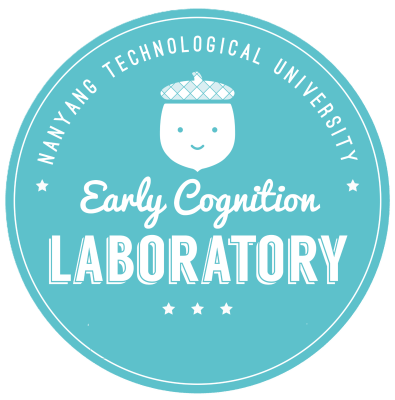
Jerron Leow Yik Joon
When I first enrolled into the URECA programme, I was uncertain in my own ability to conduct research due to my limited experience. However, the opportunity to plan and set the direction of my own study was something that drew me in, and I’m glad I took the leap of faith. Through my journey with the Early Cognition Lab, I have been given the valuable first-hand experience of working with children as research participants, and the challenges that this entails (such as the child being restless/inattentive) and how to deal with these challenges on the fly. Furthermore, our lab meetings and feedback session have allowed me to obtain valuable suggestions for my project, and learn from the senior lab members to ask good questions and think more critically about our research topics. Throughout the entire process, my supervisors and Prof Setoh have been incredibly supportive, and I’m thankful for the great environment that I was able to conduct my project in :). Overall, even if URECA was challenging at first, it has been an enriching experiencing that will surely be a highlight of my university life.
Kwek Zi Xuan
Taking up URECA has proven to be an immensely enriching experience for me. It not only equipped me with valuable knowledge and practical understanding of the entire research process in psychology, but has also instilled crucial skills such as resilience in the face of setbacks and the perseverance to overcome challenges. The extensive guidance provided by my supervisors has been instrumental, and I am truly grateful for the opportunity to broaden my horizons. I definitely have no regrets undertaking URECA, and I would encourage everyone to go it, irrespective of the interest in pursuing a research career, for the learning curve is truly rewarding and has significantly transformed my perspective on research in a positive way!


La-Mia Juan Crinis
I’ll start by admitting that I was intimidated by the URECA Project before I begun, and this underlying doubt stemmed from my lack of confidence in statistics and research skills. However, I knew that with the support of the lab’s team, as well as my optimistic approach to just grasp the opportunity – I would be able to overcome the obstacles I foresaw. There were some bumps along the way when I had a lack of knowledge about how to navigate different statistical methods, however, I felt supported throughout by my supervisor’s and senior student there to guide me. In the end, I feel like I have overcome my fear of statistics! This has allowed me to grow my interests in psychological research further, and to take up more opportunities. I would recommend URECA to all students who wish to push themselves out of their comfort zone, and to explore their interests further!
Low Yee Theng Heather
URECA was my first hands-on experience with embarking on a mixed method study, and although the journey was long and arduous, it was also incredibly rewarding. I gained so much knowledge on a variety of data collection and analysis methods for both quantitative and qualitative research; without this opportunity, I would not have been exposed to things that are outside of my normal curriculum. I received a lot of support throughout the course of my URECA project as well; supervisors and fellow lab members posed many critical questions for me to consider whenever I updated on my research progress, and this played a major role in guiding my research direction. If anyone is interested in a career in research, I highly encourage them to start off their journey by taking up URECA!


Myat Thin Kyu Aung
Doing my URECA project with the Early Cognition Laboratory was definitely an eye-opening experience. While the prospect of having to carry out a research project initially felt daunting, I did enjoy the process very much. It gave me an avenue to apply what I have learnt and to explore further. While I have learnt a lot from the works of other researchers, I feel that I have learnt most from the members of the lab. Being able to share my thoughts and ideas and receiving feedback in turn from other lab members definitely pushed me to produce a work that I am proud of. The experience and insights I’ve gained has definitely further my interest in developmental psychology. Thank you all for your guidance and support!
Ng Kai Li
When I first started my URECA project, I had almost no knowledge on planning and conducting research. At that point, I wasn’t even sure if research was something I could or wanted to do. Now, with all the foundation and competencies I have acquired over my year working with the lab, I’m far more confident in my skills and have a much clearer idea on what areas I can work on! With the support and guidance of the lab members and my supervisor, Petrina, my learning was always scaffolded and was never truly exhausting. Overall, I learnt a lot during my time at ECL, and it gave me the abilities and confidence to pursue further research projects later on.





























